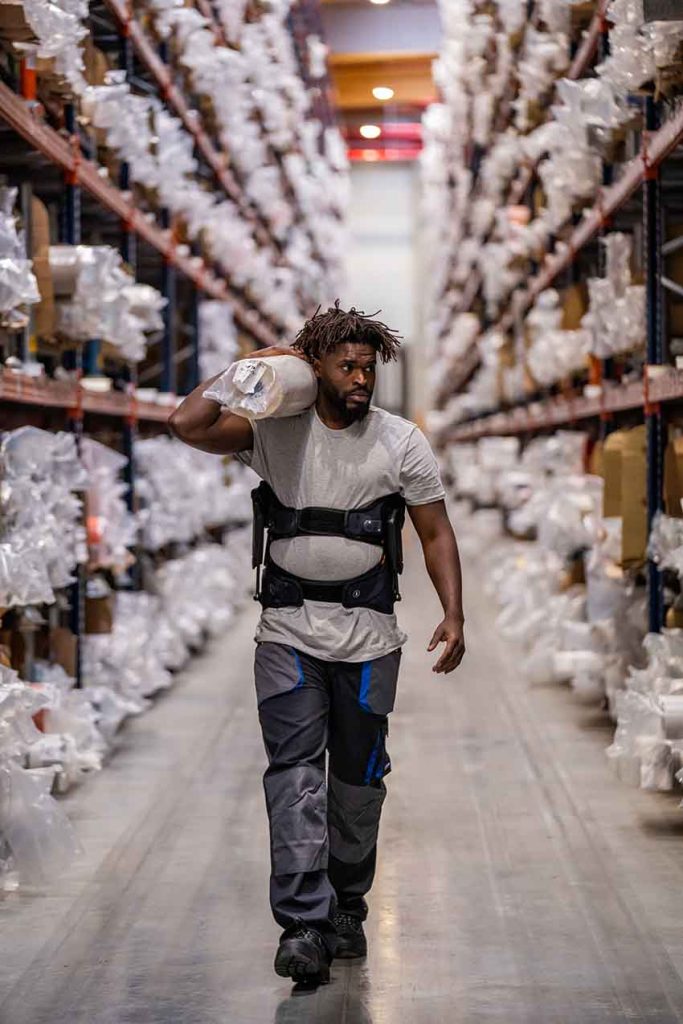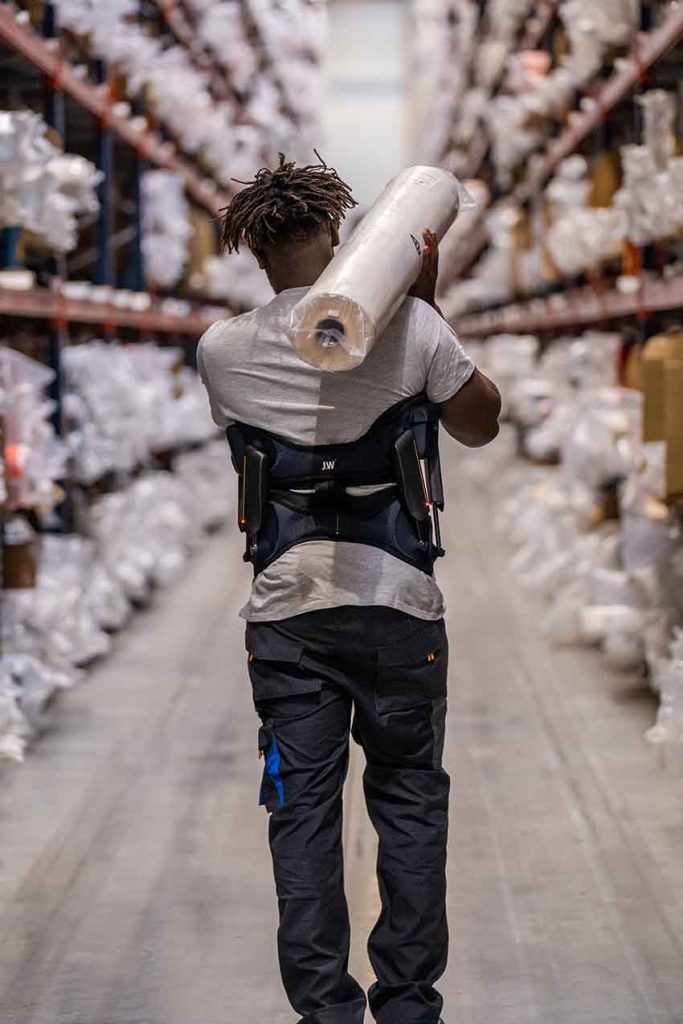Japet Medical specializes in biomechanical solutions developed according to the principles of “wearable medicine”: the combination of medical science, textile expertise and robotics. Founded in 2015, this French company owes its name to Japet, one of the Titans who carried the Cosmos in Greek mythology on its back and shoulder. Japet Medical and manufactures a back exoskeleton that aims to protect and help the operator at work, as opposed to devices geared at enhancing and boosting user performance.
Lightweight exoskeleton, approved by health authorities
Its exoskeleton is currently one of very few on the market that was designed by involving specialist doctors and medical advisors. Furthermore, it has been approved by health authorities. It is a class IIa medical device (ISO 13485) that relieves lumbar pain linked to lower-back stress by limiting the impact of carrying loads and repetitive movements on the spine.
It’s a fact: in France, Musculoskeletal Disorders (MSDs) and low back pains are the leading cause of work stoppages (167,000 annually totalling 1.2 million days of stoppage). To date, they represent 20% of work accidents, costing French companies one billion euros a year.
To counter this burden, Japet has developed a unique device that consists in a light textile lumbar belt equipped with micro-engines and weight sensors commanding a series of peripheral vertical hydraulic micro-cylinders that support and accompany the operator’s torso’s movements. It weighs less than 2kgs. Remarkably, Japet’s exoskeleton enables the operator to remain flexible and to move in every direction whilst still using his/her muscles.

Made to reinforce, not to augment
The use of exoskeletons is becoming widespread in many sectors, both in the context of prevention programs and job retention programs for recognized disabled workers.
But one common drawback of exoskeletons as they are currently known is their tendency to restrain the operator muscles, who become passive. Thus, increasing muscle weight loss and strength loss. This may have negative effects in the long-run, when the operator increasingly relies on assistance to support its own weight, and tends to let the exoskeleton do the work. Japet’s approach is to reinforce the body and to accompany the operator’ movements, rather than to increase strength to create an “augmented user”.
For the development of its exoskeleton, Japet teamed up with Dr Fahed Zairi, a Scientific Director and Neurosurgeon, and Professor Vincent Tiffreau, Head of the Rehabilitation Department, both from Lille metropolis’s Regional University Hospital. The company has since published several studies demonstrating the effectiveness of its own device.
Since its inception, Japet has been producing the Japet.W, adopted by more than 800 users in 20 countries, just 4 years after the initial go-to-market in 2019. Japet’s exoskeleton is used by employees at risk of lumbar MSDs due to their activity in various fields: naval, aeronautical construction; railway industries; logistics and distribution; agrifood; but also top-level motorsport teams and craftspeople, including farriers…
Recently, the company introduced a new model, the Japet.W+, first presented to the public at the Préventica Paris 2023 trade show last May. The new exoskeleton is already a success. It is equipped with new motors twice as responsive, is available in 4 sizes (S-M-L-XL) and can be easily cleaned thanks to a removable “second skin”.

International success
Thanks to its work, research and production effort, Japet Medical has obtained 8 awards and raised 2.2 million euros from investors since its foundation. A recent crowdfunding campaign in France totalled more than 1.2 million euros, twice the expected amount. The company is now targeting European markets, with an emphasis on Germany, Europe’s second most mature market after France because of its industry and other sectors where Japet’s exoskeleton could be particularly useful, namely agrifood and logistics. Japet aims to leverage interest from those three key sectors to replicate its commercial approach in other markets.
Japet also exports to Japan, Colombia, Hong Kong, South Korea, Switzerland, China and Singapore, and is currently working on its commercial development in the United States.

